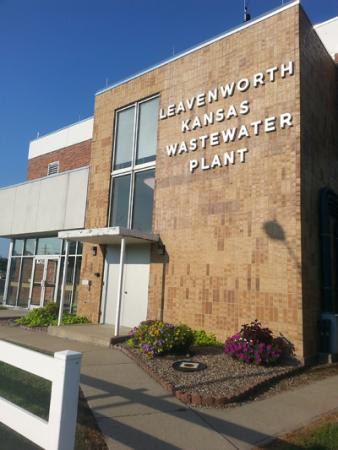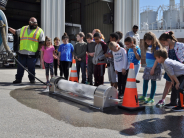Water Pollution Control
Have a sewer emergency? Call us 913-682-1090 24 hours a day, 7 days a week. Water Pollution Control is a division of the Public Works Department that oversees the treatment of wastewater. The plant is at 1800 S. 2nd Street. Our goal is to protect public health and the environment by providing wastewater conveyance and treatment using the best available technology to prevent disease and nuisances, avoiding public water supply contamination and silting of navigable waterways, maintaining clean water for aquatic species, bathing, recreation, and conserving water for all uses. The Water Pollution Control Division staff operate and maintain the Wastewater Treatment Plant and the Wastewater Collection System. The Wastewater Plant is designed to treat up to 6.88 million gallons of water per day. It is a secondary treatment facility using mechanical, biological and chemical treatments. It was completed in 1974 and has had three upgrades in the last decade. The plant features integrated odor control systems to significantly reduce off-site odors. Over 1.1 billion gallons of water are treated each year. More than 5,000 tons of dewatered sludge are removed and stabilized yearly. The plant averages over 90% removal of pollutants. The Wastewater Collection System consists of 133.5 miles of pipe and 2,929 manholes. Crews respond to system-user requests for service 24 hours a day, 7 days a week with an average response time of a half hour. Scheduled maintenance activities include cleaning, televising, and the removal of grease, roots, and debris. The entire system is mapped and system records are kept in a database. According to Kansas Department of Health and Environment it is against the law to dump a sanitary wastewater holding tank from a travel trailer into any unauthorized receiving station, including creeks and storm drains.




